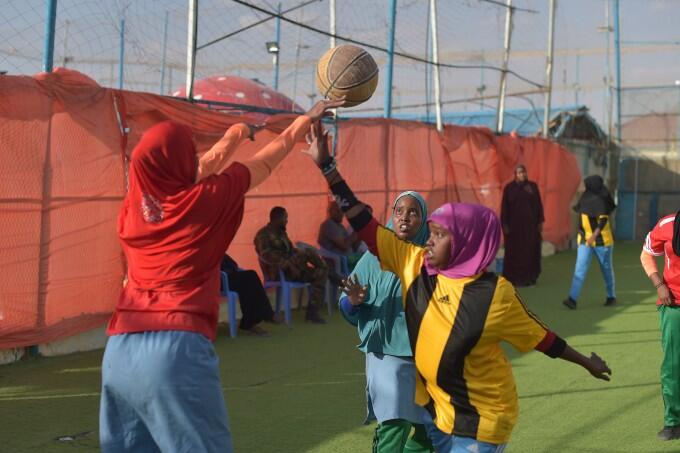Twenty-three-year old Najma Muse (not her real name) from Garowe, Puntland dropped out of school when she got married at the tender age of 14. She was just in class seven of primary school at the time she entered wedlock.
Prior to that she had undergone Type III female genital mutilation (FGM) also known as infibulation. This involves narrowing of the vaginal orifice with a covering seal. The seal is formed by cutting and repositioning the labia minora and/or the labia majora. This can take place with or without removal of the clitoris.
“I fell pregnant soon after getting married, and I nearly died of pregnancy-related complications at the age of 15 as I suffered prolonged labour when I was giving birth,” explains Najma. FGM has severe implications for the sexual and reproductive health of girls and women.
Infibulation, or type III FGM, may cause complete vaginal obstruction resulting in the accumulation of menstrual flow in the vagina and uterus. Infibulation creates a physical barrier to sexual intercourse and childbirth. An infibulated woman, therefore, has to undergo gradual dilation of the vaginal opening before sexual intercourse can take place. Often, infibulated women are cut open on the first night of marriage, by the husband or a circumciser, to enable the husband to be intimate with his wife. At childbirth, many women also have to be cut again because the vaginal opening is too small to allow for the passage of a baby. Infibulation is also linked to menstrual and urination disorders, recurrent bladder and urinary tract infections, fistulae and infertility.
Somalia is one of the countries in the world with the highest prevalence of FGM. The recently-launched Somali Health and Demographic Survey (SHDS) indicates a prevalence of 99 percent among women and girls aged 15 to 49 years. The country continues to lack a critical legislative framework to end FGM due to weak political will and the lack of consensus among key religious groups for zero tolerance for FGM.
Najma also had to contend with the consequences of getting married at a young age. Child marriage threatens girls’ lives and health, and it limits their future prospects. Just like Najma, many girls pressed into child marriage often become pregnant while still adolescents, increasing the risk of complications in pregnancy or childbirth. These complications are the leading cause of death among older adolescent girls.
Najma survived the prolonged labour after accessing medical attention in good time at Garowe General Hospital, which receives support from UNFPA Somalia. The hospital provides life-saving Comprehensive Emergency Obstetric Care, according to UNFPA, according to Ms. Bahsan Said, the acting head of UNFPA Garowe Office.
“We are working with the government and health experts in Puntland to improve the availability of reproductive health services and strengthen health systems,” explained Ms. Said.
By the age of 17, Najma was divorced with three children. “I returned to my mother’s house. I had gained weight by then, and I was weighing 94 kilograms. Some of my friends recommended that I should join them in exercising, and that’s when I discovered basketball which led me to be the advocate that I am now,” she said.
Female basketball players in the Puntland State of Somalia have been raising their voices in support of the campaign towards ending child marriage and FGM under the Ministry of Labour, Youth and Sports with support from UNFPA Somalia.
Early marriage and early childbearing, coupled with the nearly universal practice of FGM, are factors that are increasing the vulnerability of girls and women and contributing to the high rates of maternal mortality in Somalia.
Basketball for females is relatively a new phenomenon in Somalia as sports for women in the country was considered a taboo and culturally insensitive since the civil war in 1991. Somalia’s prolonged civil war resulted into shattered sport infrastructures but also created a challenging environment for female sports and lack of acceptance by certain religious groups who argue that sports is immodest, and that Islam does not allow women to play sports or to wear shirts and pants.
After joining the basketball team, Najma’s passion to contribute towards ending early marriage and FGM grew. She was subsequently given a chance to attend a trainer of trainers course on awareness-raising on early marriage and FGM and providing peer support.
“Basketball for females attracts many young girls in Puntland. It is one of the best channels to communicate different messages to girls and raise awareness against harmful cultural practices. I am a survivor of both, and I share my experiences with the girls,” said Najma.
Najma has also been tasked with training young girls who want to learn playing basketball as the fight towards zero tolerance for FGM continues in Somalia.
----------Kamal Abdukadir


